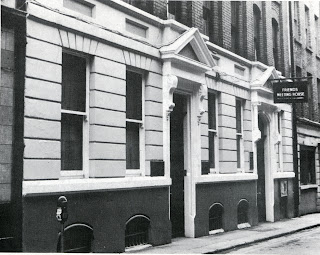Trish Long recalls The Crying Game Oscar party at the IFI on March 29, 1993
1993 Ireland was a zone free of mobile phones, gaming, email and the internet. Our home entertainment was mainly driven by VHS rental (for which one needed to schlep to the video store) and limited cable TV. Satellite TV access was in its infancy. How then could a film fan be part, in real time, of the amazing achievement of Neil Jordan's The Crying Game which received 6 Oscar noms? That's where the IFI came to the rescue.
The IFI cinemas had not only screened
The Crying Game but had also helped market its Irish release. Open a mere 6 months (and having revolutionised the cinema-going experience in Ireland) this was the 1st Oscars in its short lifetime. The team came up with the crazy idea of hosting a LIVE Oscars party. Somehow we managed to organise a satellite feed in the foyer; a few hundred people gathered for the Oscars ceremony (which as I recall began at 1am Irish time). There were fully catered round tables, dressed with golden statuettes and the most phenomenal buzz. As well as some of the movie's Irish cast & crew, some of Neil's family attended as did many from the Irish film industry & tons of media, including a few TV crews. It was a true communal experience, staying up throughout the night to watch the 1993 Oscars with a bunch of fellow film lovers, who all felt deeply invested in this movie & all it represented for Ireland.
Neil Jordan
An earlyish win in the 'Best original screenplay' category received a raucous cheer & was a huge boost to the already buoyant mood. There were to be no more Oscar wins for us that night (it was an Unforgiven year...) BUT 6 nominations and an Oscar led to a wonderful celebration & kickstarted, I believe, a new sense of 'Yes we can' in the Irish film world.
However, the night also shines brightly in my memory for another very important reason. One of the guests just happened to be the recently appointed Minister for Arts, Culture & the Gaeltacht - one Mr Michael D. Higgins (aka The President Of Ireland). With impeccable timing worthy of an Oscar winning actor, he chose that night to announce - live -- the resurrection of An Bord Scannán na hÉireann/ The Irish Film Board.
In the early morning, we all made our way to our homes with a renewed optimism for the future of Irish film and all that it might bring; while clutching our own personal golden statuette candle (20 years later - I've yet to burn mine) .....
Trish Long
Vice President and General Manager, Disney Ireland
and Marketing Director IFI (Aug 1992- Sept 1994)
The Crying Game is screening on Sunday, May 12th (16.10), as part of Neil Jordan Retrospective which runs between May 1st and 30th 2013 at the IFI.
#IFIJordan
Previously published as part of IFI20 - Celebrating 20 years in Temple Bar in September 2012.
#IFIJordan
Previously published as part of IFI20 - Celebrating 20 years in Temple Bar in September 2012.






































